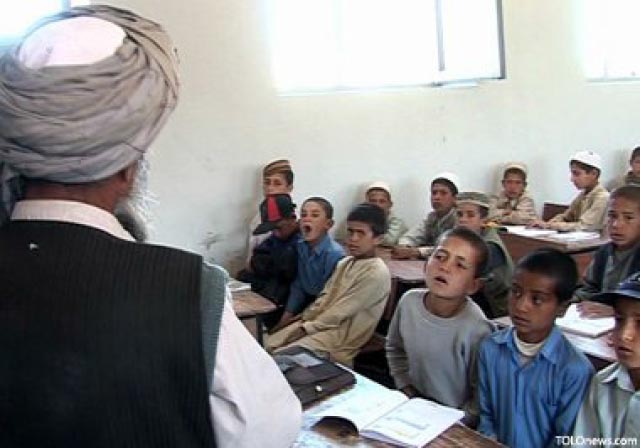KABUL - There is widespread political activism, including an extensive presence of radical activists among high school students in Afghanistan, a new study by Afghanistan Research and Evaluation Unit (AREU) said Wednesday.
This is despite a government ban on political activism in high schools, which in itself can be argued that is a relic of an authoritarian era, said AREU in a statement.
The study reiterates that the on-going radicalization of high-school students has not yet reached a critical point, where it could contribute decisively to the destabilization of the country. However, rather than waiting for that to happen, the competent authorities should
reconsider the effectiveness of their educational policies and, first and foremost, their ban on political activities in high schools.
The study was conducted over six months and covered 18 provinces.
"Political activities in high schools are concerning and extremist and radical Islamic parties are active at schools," said Ali Mohammad Ali, an AREU researcher.
"Most groups like Tehrik-e-Islami, Hezb ut-Tahrir and Jamiat-e-Islah of which their centers are outside the country, recruit teachers here with high salaries and then attract the attention of students," he added.
He said that such groups want to infiltrate all tribes and ethnic groups of Afghanistan.
"Hezb ut-Tahrir and Jamiat-e-Islah are mostly active in Kunduz and their goal is to infiltrate all tribes in Afghanistan," Ali added.
The study reiterates that the lack of employment, a sluggish economy and dissatisfaction about the functioning of the Afghan educational system are major factors in the politicization of high school students in Afghanistan, which also includes an attraction towards extremist groups.
Researcher and university lecturer Dr. Antonio Giustozzi said: "If nothing is done I think there is going to be a problem of serious political mobilization among the students. Then of course the students are the generation of the future," he said adding that often people kept these political ideals they absorb in high school for the rest of their lives.
In addition, the study found: "One key assumption of donors in Afghanistan is that the quantitative growth in the offer of state education is always a positive indicator and that the number of students enrolling in high schools is an unmistakably positive sign."
"The numerical rise of youth in education, not matched by an improvement in the quality of education and/or growth in educational opportunities, leads to youth radicalization and political instability," read the statement.
The study notes that if the ban were to be revoked, at least there would be a more level playing field in high schools, allowing a greater variety of parties and organizations to compete for the loyalty of the younger generation. To date, the ban has primarily only been successful in keeping out moderate and progressive groups. (Tolonews)

